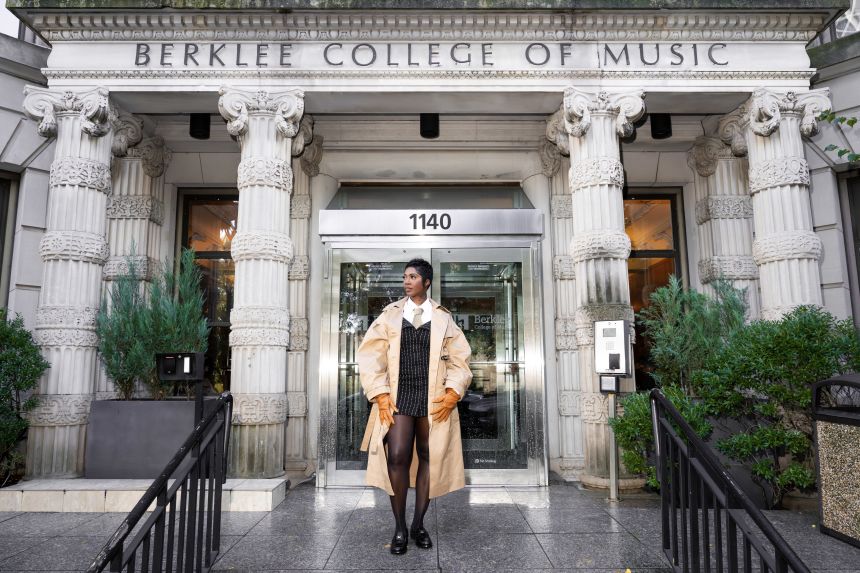Bomi Anifowose
Falz’s sixth solo oeuvre begins not with fanfare but with intention. On The Feast, Falz no longer needs to raise his voice. Instead, he lets presence do the talking. The opener, “Round of Applause,” sets the tone like an overture, unfurling slowly and deliberately. This is not the Falz of viral skits or courtroom allegories.
This is a Falz who has taken off the robe and the clown shoes, rolled up his sleeves, and stepped into a quieter kind of performance. The claps are not for show. They are acknowledgements of the journey.
This is Falz’s sixth studio album and arguably his most mature, not because he has aged but because he has simmered. On The Feast, the likable wordsmith chooses restraint over overt provocation. The jokes still land, but they are fewer, and never at the expense of depth. The protest energy of Moral Instruction has been rechanneled into personal excavation. and a flair for the hedonistic. There are songs where he wears his admonition regalia, but he doesn’t dwell for long.
The seasoned rapper’s voice has never been more in command. Whether growling or gliding, Falz sounds comfortable inside his own skin. The instrumentation helps. There are horns that preach, strings that soothe, and percussion that moves with the gait of a man who knows he has nothing to prove. On “Old Soja,” the metaphors are thick with double meaning. The soldier is tired, but not broken. Falz delivers his bars like someone who has survived enough noise to finally hear himself think.
“Anything Goes,” a sleek collaboration with fast rising Nigerian singer Majeed, plays like Lagos under streetlight—shiny, unpredictable, and just a little dangerous. The production is clean but textured, letting Falz coast with his trademark rhythmic nonchalance. It is the kind of track that could be mistaken for light listening until you catch what he is saying. Falz no longer laughs at chaos. He sidesteps it entirely.
The real emotional muscle of the album flexes on “No Less,” where The Cavemen bring their lush highlife palette into the room. This is where Falz most clearly exchanges satire for soul. He speaks plainly. The drums do the smiling. The strings do the remembering. It is not nostalgia for its own sake. It is nostalgia as a foundation. Falz is building something here, and the mortar is memory.
Even when he reverts to flirtation, as on “Wayo” with Shaybo, there is care in the construction. The playfulness is sharp, never shallow. Shaybo’s feature is a power move. Her cadence is weighty, her tone declarative. Falz steps back just enough to let her shine, but never disappears from the frame. This is the balance he strikes throughout the album. Collaboration without compromise.
“Wonderfully Made” is a standout, not because of any sonic gimmick, but because it trusts the listener to receive beauty without urgency. It is a quiet affirmation of Blackness and becoming. Falz recites his lyrics like someone reciting family names from memory. You feel the history in his breath. You hear the gentleness in the percussion. It is not soft because it is safe. It is soft because it is sacred.
There is a sense of thematic progression that makes The Feast feel like more than a playlist. It feels composed. “Famomi” invites movement. “Story Time” slows you down. “Eat” finds the midpoint between rhythm and ritual. Even the features feel carefully chosen. Qing Madi’s vocals rise like incense while Dotti the Deity’s verses jolt the pulse. These are not just guest spots. They are ingredients.
Still, what lingers most is the album’s refusal to chase the moment. The Feast is not trendy. It is timeless in the way only something made with care can be. Falz is no longer reacting to the world in real time. He is responding to what the world has done to him. That difference is subtle, but it defines the album’s emotional register.
At twelve tracks, the album is compact but never cramped. Each song breathes. Each transition feels like a chapter turn. The man who once served cultural critique on a platter of humor now serves warmth, reflection, and melody with the same attentiveness. The flavor has changed, but the hands in the kitchen are the same.
Falz has always been a craftsman. What The Feast reveals is a craftsman who now understands that sometimes, the boldest statement is silence between bars. The sharpest protest is a song that soothes. And the most revolutionary act is choosing to grow where once you would have performed.
He does not want you to laugh. He wants you to listen. And on The Feast, you finally hear him.




